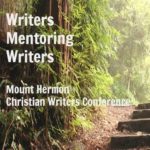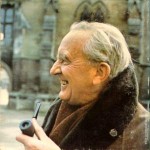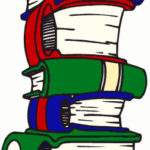Some Reflections on Reading
 In 1940, Mortimer Adler’s iconic How to Read a Book was first published. For those unfamiliar with the work, there may appear to be some irony here. After all, if someone couldn’t read a book, how would writing a book on the subject help them?
In 1940, Mortimer Adler’s iconic How to Read a Book was first published. For those unfamiliar with the work, there may appear to be some irony here. After all, if someone couldn’t read a book, how would writing a book on the subject help them?
Of course, Adler wasn’t really writing about literacy, per se, but rather about the task of reading for true understanding and comprehension, which as we all know (if we’ve ever gone beyond what we might call casual reading and really wrestled with a challenging work) is not as easy as it first appears.
I bring Adler up because I do find myself thinking from time to time that the task of reading requires more education than simply learning what words mean. More to the point, I think that for Christians, some reflection on how we read is in order. To that end, I’d like to offer a few thoughts on reading from a Christian perspective.
To illustrate the things I would like to say, I will be referencing two well-known poems, John Donne’s “Holy Sonnet 14” and Percy Shelley’s “Ode to the West Wind.” (The advantage of choosing poems is that they are brief and easily looked up online, so that anyone unfamiliar with them can remedy this lack in just a matter of minutes.)
Even if you don’t know anything about Donne or Shelley, a reader coming to these two works will quickly discover they represent more than just contrasting styles: they offer contrasting worldviews. “Holy Sonnet 14” opens with this poignant appeal, “Batter my heart, three-person’d God,” and the poem as a prayer for the triune God’s forcible intervention into the poet’s unworthy life continues from there. We might then summarize the poem’s general purpose as a prayer to God for sanctification.
Shelley’s “Ode to the West Wind” is also a prayer of sorts, and like “Holy Sonnet 14” there is a sense of desperation in the tone as the poet makes his heartfelt appeal for a higher power to intervene in his life — only this higher power is not the triune God, but the West Wind, which may in all likelihood stand symbolically for Nature. Shelley speaks of striving with the West Wind in prayer in the fourth stanza, and in the fifth, says to the Wind, “Make me thy lyre, even as the forest is… Be thou, Spirit fierce, My spirit! Be thou me, impetuous one!” Shelley’s poem, then, is a prayer to Nature for inspiration — a very different kind of prayer, I think we would all agree.
So, how would a Christian read these two poems? I think some Christians would read them both, rightly perceive their different worldviews, and then conclude that Donne’s poem was “good” and Shelley’s was “bad.” Still some others, might first praise some of Shelley’s poetic technique but ultimate come to the same conclusion, that there is no place for Shelley’s “Ode” in a Christian’s life.
Personally, I can’t agree with either position, even the more nuanced second option. I think that recognizing the pagan nature of the poem is expected of me — and with this recognition, a rejection of what it represents — but beyond that, I think I have quite a bit of freedom with how I view the poem, and I mean here more than just the poetic elements.
With this in mind, here are some reasons why I really value Shelley’s “Ode to the West Wind,” even given my objection to its fundamental theme.
- The language is beautiful — I am, in general, very fond of the English Romantics even though their view of life was often diametrically opposed to my own, and Shelley is no exception. When he is on his game, he writes with both beauty and power. The following excerpt from the poem demonstrates this as it speaks of the power of the wind not only to effect the surface of the mighty ocean, but the plants that grow far below…
“Thou For whose path the Atlantic’s level powers
Cleave themselves into chasms, while far below
The sea-blooms and the oozy woods which wear
The sapless foliage of the ocean, know
Thy voice, and suddenly grow grey with fear,
And tremble and despoil themselves: O hear!”The picture of the foliage on the ocean floor hearing the mighty echo of the West Wind’s voice far above and trembling and despoiling themselves is really magnificent, isn’t it?
- The shared human experience is real — near the end of the poem, we learn that Shelley has been driven to this prayer to the West Wind out of some extremity, and he is desperate for inspiration and aid. He cries out in a moving line, “I fall upon the thorns of life! I bleed!” There have certainly been times in my life since this poem first captured me in college, when I have felt the weight that Shelley speaks of just after this line, and when I have thought to myself, “I fall upon the thorns of life! I bleed!” It is not to the West Wind that I cry out, but his poem and his phrasing have at times given me the words that I utter in the extremity of my own need.
- The longing for the supernatural is an echo of truth — Shelley’s prayer is directed to the wrong source, but there is in it an echo of what we ought to do, to seek something greater than us when we have been brought to our knees by the inevitable weight of life. The urge and longing to seek out the Divine is clearly expressed here, and that longing for the Divine we can commend as God-given, for the longing to find that something larger than us to which our hearts bend is a gift from God.
I think there are lessons here for any kind of reading — including speculative fiction. A lot of poems and short stories and novels that fundamentally present a worldview which I do not share, nevertheless, may have any of these good attributes: literary beauty, powerful illustrations of our shared human experience, and echoes of spiritual truths that point (perhaps indirectly) to the source of all truth.
This is not to say that everything is acceptable to read. There are lines that we must draw, and I have no wish to deny that. What I do deny is that this process is as simple as identifying the worldview of a literary work as “Christian” or “Not Christian” and then throwing out everything in the second group. I think the discernment which God calls us to, penetrates deeper than this.
Interestingly, Donne’s own poetry shocked many Christians in his own time — and no doubt, even in generations after him. In “Holy Sonnet 14,” he concludes his prayer for God’s forcible intervention in his life by saying he will never be chaste, “except you ravish me.” This image is one of many that is meant to convey that where we resist God’s sovereign, sanctifying hand, he must do in us even that good work which we resist — and yet, the frank, sexual nature of the image made many a good churchman blush.
All this to say, the struggle to figure out what is permissible to read is not new in our own time. What’s more, it isn’t easy, in any time — at least, I don’t think it is meant to be. Thinking more carefully and looking more deeply than we sometimes tend to, might be a good start.
– – – – –
 “L.B. Graham is the author of The Binding of the Blade, a five book fantasy series, the first of which, Beyond the Summerland, was a Christy Finalist in 2005. He writes fantasy/sci-fi and contemporary adult fiction. In addition, he teaches Worldviews and serves as the Bible Department Chair at Westminster Christian Academy in St. Louis. His latest book is The Darker Road, the first book in a new fantasy series called The Wandering. For more information about his published works and forthcoming titles visit his web site.
“L.B. Graham is the author of The Binding of the Blade, a five book fantasy series, the first of which, Beyond the Summerland, was a Christy Finalist in 2005. He writes fantasy/sci-fi and contemporary adult fiction. In addition, he teaches Worldviews and serves as the Bible Department Chair at Westminster Christian Academy in St. Louis. His latest book is The Darker Road, the first book in a new fantasy series called The Wandering. For more information about his published works and forthcoming titles visit his web site.











































I especially appreciate your point three. I have read quite a bit about Shelley’s circle, and I think they were yearning toward God. The wildest of them, Claire Clairmont, lived the longest, and eventually ended up a Christian,
I had to laugh about labeling Donne “good” because he’s kind of a pervert, Anglican priest or not. He did use a lot of religion in his poetry, in direct appeals or in symbolism, but he did stuff like compare the Trinity with the mingling of his and his love’s blood within the belly of a flea (“The Flea”).
But as much as you try to mellow the Acceptable Interpretation According to the Christian Worldview(TM), I still think that approach has problems, and I’m going to outsource my commentary on that to the blog post of someone who articulates it better than I: http://defeatingthedragons.wordpress.com/2013/01/30/spectacles/.
My English teacher at community college seemed to take a small amount of pleasure in pointing out that John Donne had been promiscuous, and that a lot of his poems have sexual themes or subtext.
But, if that sonnet is any indication of Donne’s heart, no one can say that his life and work were not ultimately good. That despairing, helpless prayer, frankly acknowledging his shameful weakness in the last line, has got to be about the purest appeal that anyone can make.
From what I remember of him, it’s rather simplistic to say that he was good despite his pervyness. His pervyness seemed to exist alongside, almost independently, of his (relative) piety. If it were a perv vs pious thing, I think he would contrast them, not mix them. Then again, it was later, more in the Victorian age, when sex became the Evilest. Thing. Evar. in the cultural consciousness.
This short exchange might serve as another kind of object lesson in reading carefully for two reasons. First, the paragraph being referred to never refers to Donne as ‘good’ because he wrote ‘Holy Sonnet 14,’ but that some might think ‘Holy Sonnet 14’ was good because of the obvious Christian worldview. Second, it illustrates our tendency to judge the man (or woman) and not the work, which can lead us to accept things we shouldn’t because we admire the one writing it, or on the other hand, reject things we shouldn’t, because we know of the shortcomings of the author. Risky business, I think.
I think that we need to get beyond “x worldview is bad and therefore we must reject any literature that supports x”, but any replacement theory would be equally reductionist.
Agreed. If we try to craft an all-encompassing law or formula to settle the question of which books and stories are acceptable for Christians and which are not, we will fail. The lines that we draw should always be individual — drawn for ourselves, and at most suggested for others in humility and the understanding that such a line might not be suitable for other people, because only God understands them.
I suppose it’s better to have poetry going through your head rather than quotes from Stephen King novels, hee hee.
I enjoy arguing with books in my head. I learned to do it in high school when I had my worldview training (I believe it was Gene Edward Veith’s book Reading Between the Lines that taught me this). It’s always fun to pick out the worldview in the book, and ponder how that may or may not reflect the writer’s worldview.
It’s why I was totally fine with the So You Want to be a Wizard series until the book with the computer planet. There’s a line where the angels tell the wizards that someday the angels will worship the wizards–and I was done. I mangled my way through that sort of thing with L’Engle and I’m tired of running into it in middle grade fiction. (Behold, ye shall be as gods!)
Plus that series always kills the interesting minor characters.
I don’t mind arguing with a book’s worldview when it’s layered and complex, like in the Merlin Conspiracy, or The Raven Boys. Each book is saying, “Hey, wouldn’t it be neat if the world worked THIS way?”
On the other hand, if I’m arguing with their science–as happened with the last post-apoc book I read–I put it down with a poor view of the author. If you’re going to move the moon closer to the earth, talk to some scientists and figure out what that would entail. Sheesh.
Kessie, I appreciate the ‘arguing with books’ point. There is something to be said for the dialogue/conversational view of reading. I like to say sometimes that my favorite books are friends, and just like I don’t always agree with my friends, even on big questions like worldview questions, I don’t always agree with my favorite books – but that doesn’t mean they don’t have value.